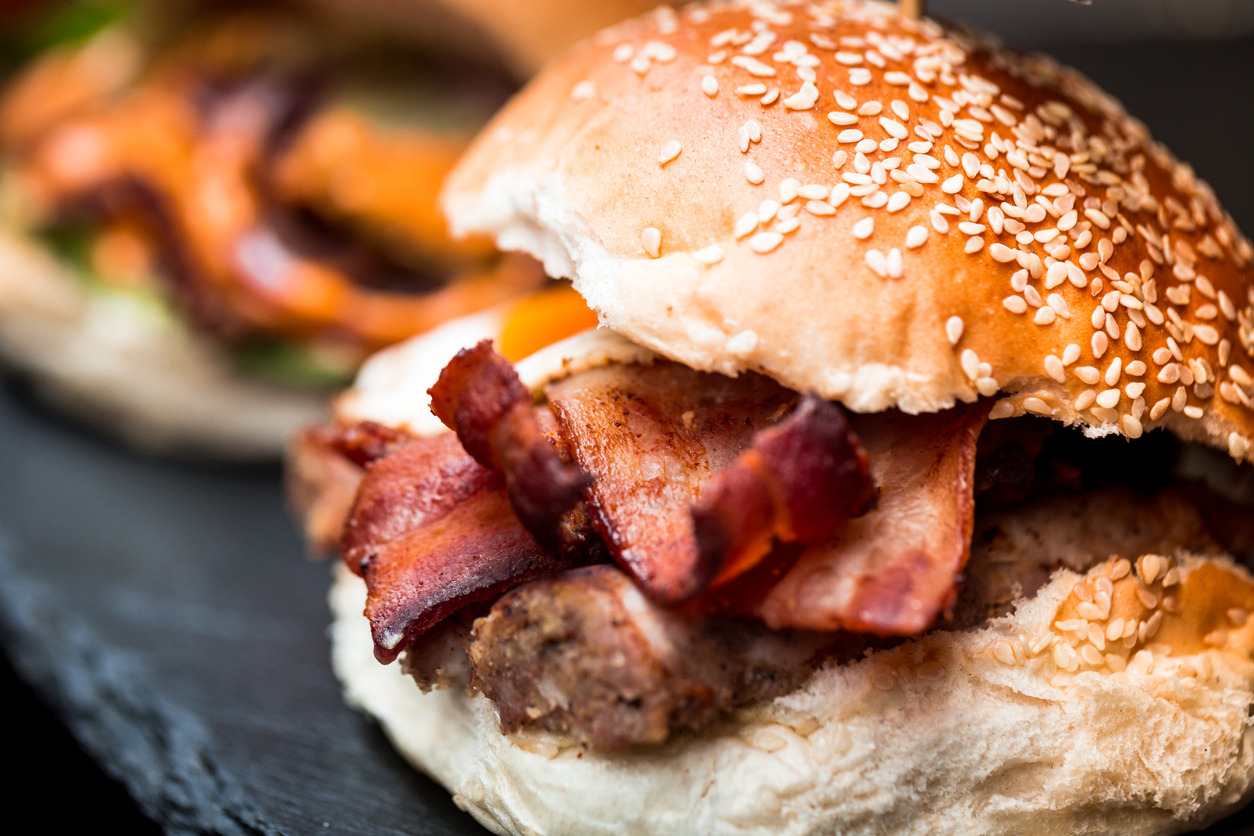A diet rich in processed meats like bacon, ham and hot dogs can increase the risk of prostate cancer by nearly 60 per cent, a new study shows.
Scientists found chemicals added to stop the meat products from going off can kick-start tumour growth.
But they also found the same chemicals, called nitrates and nitrites, do not cause cancer when consumed in the form of vegetables like spinach, rocket, celery and beetroot – where they occur naturally in high quantities.
Experts now think that high levels of disease-fighting antioxidants found in fresh vegetables prevent any cancer-inducing actions that the chemicals might have.
But as processed meats are very low in antioxidants, the additives in them may be more likely to promote tumour growth.
Nitrates and nitrites are naturally occurring chemical compounds which contain nitrogen and oxygen.
They are found in abundance in soil, air and water and get absorbed by plants as they grow. Around 80 per cent of human dietary intake of the chemicals comes from eating vegetables.

They have also been used for decades as a preservative as they can block the growth of harmful bacteria that can cause food poisoning. They also give bacon and ham their distinctive pink colour and salty taste.
But there have been repeated safety concerns over their potential links with various types of cancer.
To shed more light on the possible risk, a team of researchers from several French universities and the World Health Organisation trawled through the records of more than 100,000 adults who were taking part in a long-running study on dietary habits.
The scientists documented intake of nitrates and nitrites from both vegetables and processed meats and matched up the findings to cancer occurrence among those in the study.
The results, published in the International Journal of Epidemiology, revealed that those men consuming the highest levels of the chemicals in the form of processed meats were 58 per cent more likely to develop prostate cancer than men who ate little or no processed meat.
In contrast, the amount they consumed in the form of vegetables appeared to have no effect on cancer risk.
The same study found women with similar eating habits had a 24 per cent increase in the risk of breast cancer.
Findings on bowel cancer were less clear.
In a report the researchers said: ‘In this study, only nitrates and nitrites as food additives were associated with cancer risk, yet their contribution to total intakes were relatively low in comparison with natural sources.
The UK NHS website says meat is a good source of protein, vitamins and minerals but it adds: ‘If you eat more than 90g (cooked weight) of red or processed meat a day, you are advised to cut down to 70g.’




